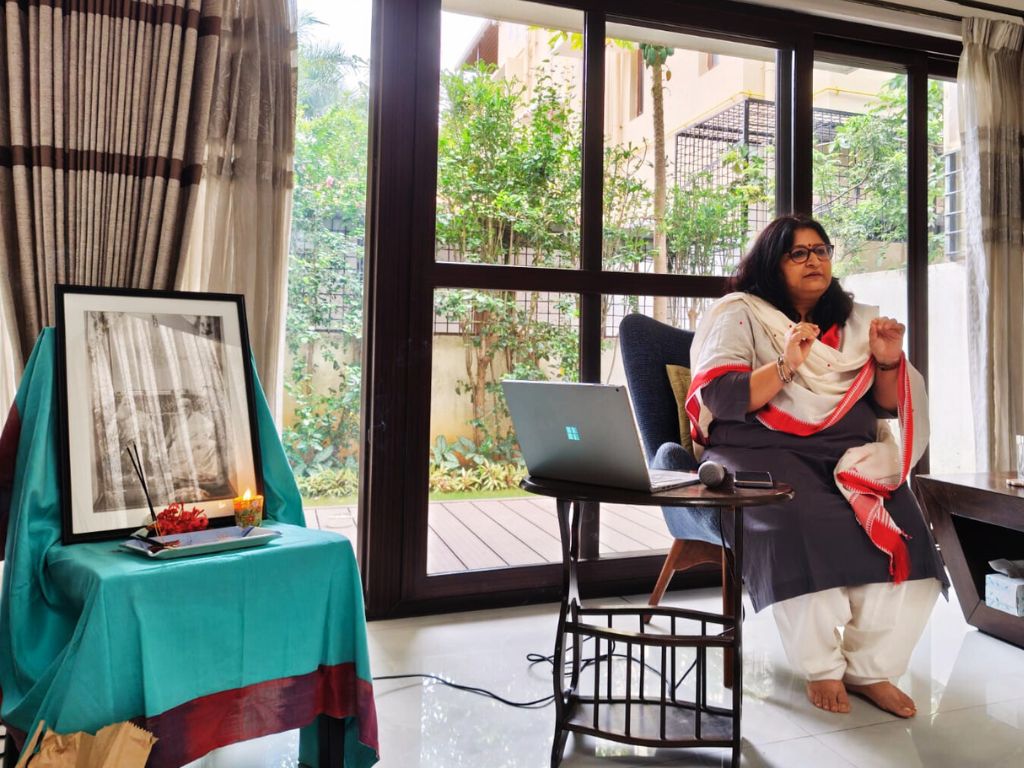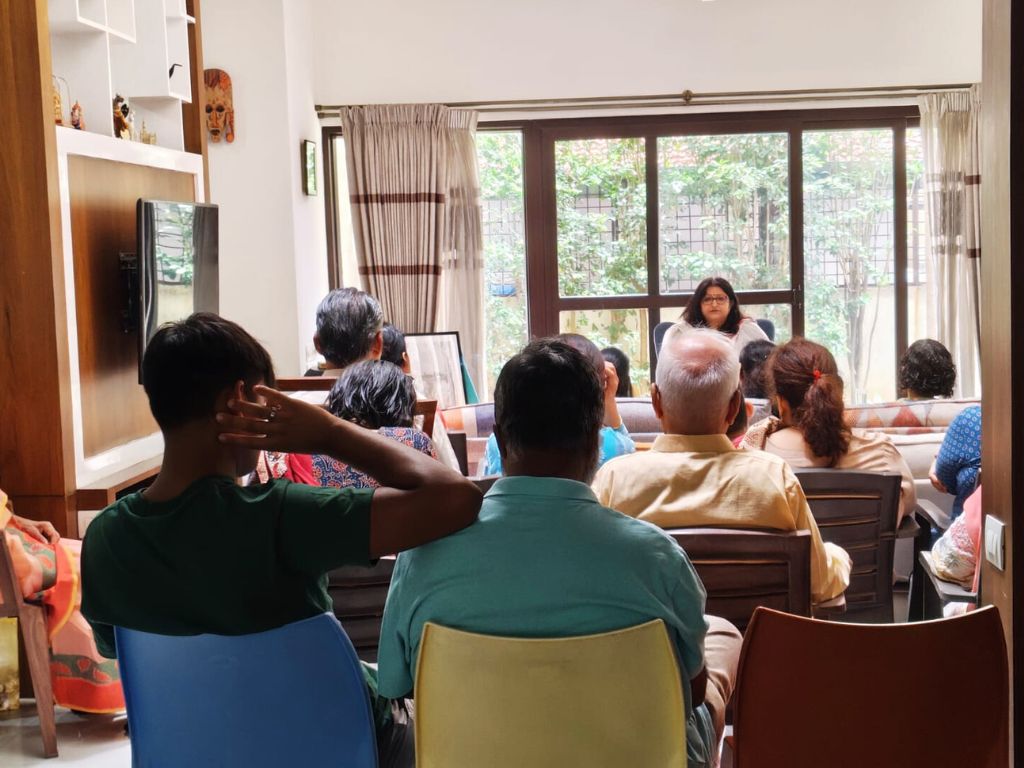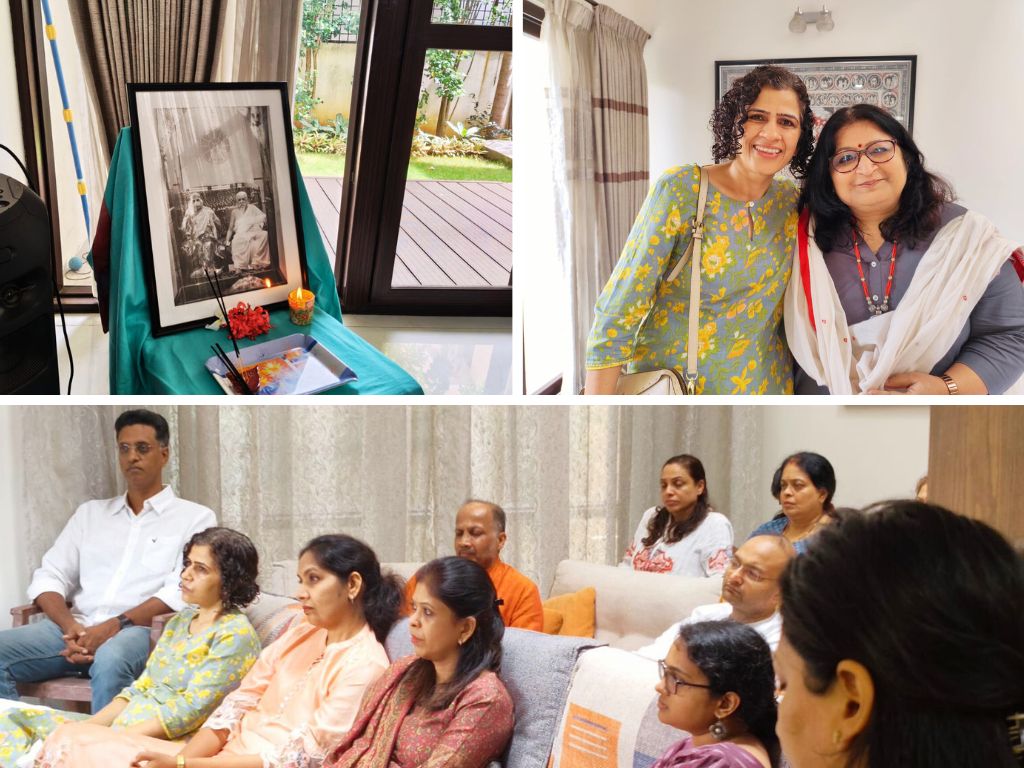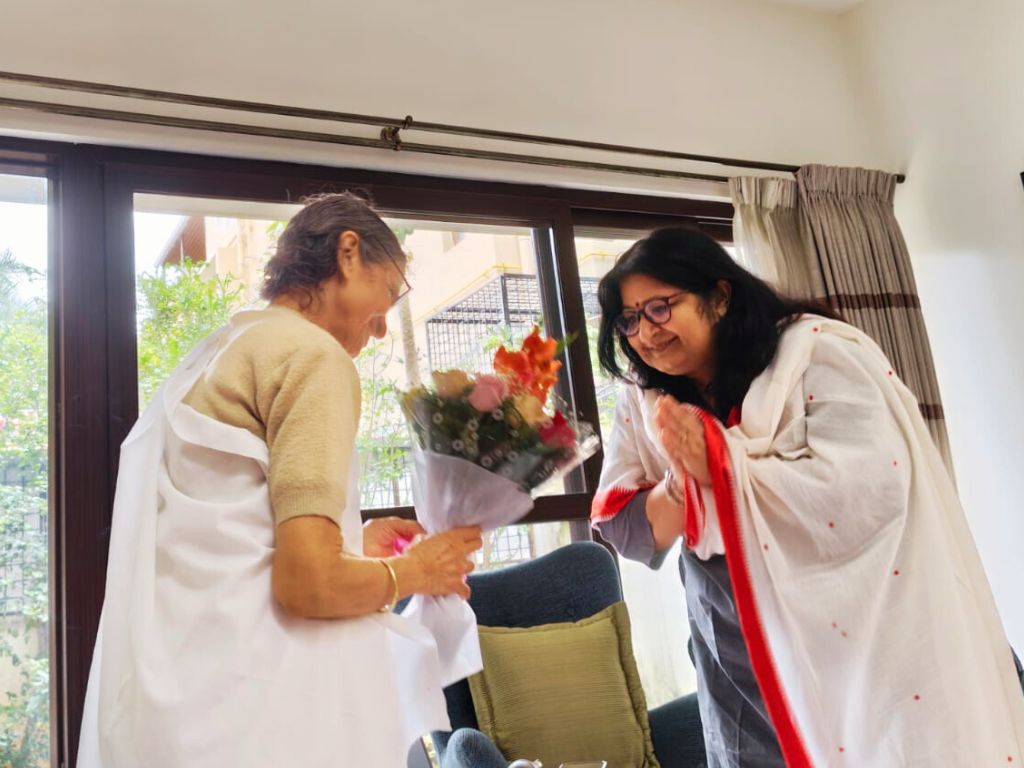Date: September 21, 2025
Venue: Doddanakundi, Bengaluru
On September 21, 2025, Dr. Beloo Mehra facilitated a session on the topic – ‘Karmanyevadhikaraste: Yogic Attitude to Work’ for a group of about 25 working professionals in Bengaluru. The programme was organised by Ms. Chitra Kolluru, a BhāratShakti resource person and Renaissance author, at her home in Doddanakundi, Bengaluru. The invited participants were mostly working as high-level managers and executives in corporations. The programme organiser Ms. Kolluru and Dr. Mehra had engaged in some prior discussions regarding the topic so as to make it more relevant for the specific audience.
It was agreed that a primary question of interest to such individuals is whether the kind of works they are presently engaged in, which is generally done for personal motives such as money, career growth, promotion, ambition etc. can be in any way become an opportunity for inner growth, or does spiritual pursuit requires one to abandon such outer works and focus only on one’s spiritual aspiration. With this intention, Dr. Mehra put together some thoughts for a brief talk which set the initial context for the interactive session.

Dr. Mehra opened with chanting of Sri Aurobindo’s Gayatri Mantra. She began her talk with a brief story from the Puranas featuring an interaction between King Janaka and Narada Muni in which the celestial sage is given a lesson in concentration by the philosopher-king. The sage learns that with intense sadhana it is possible to stay inwardly concentrated and completely focused on the Self, one’s true being within, while outwardly engaged in all works that must be done.
This story became the basis for Dr. Mehra to bring in the second mantra from Isha Upanishad which emphasises full engagement with life and works in order to live a fulfilling life. Furthermore, the Upanishad says that by doing all works in the spirit of sadhana, one is not bound by the consequences of action. Dr. Mehra briefly elaborated on the meaning of this mantra and connected it with the famous shloka from the Bhagavad Gita which speaks of our right to only the action but not to the fruits of the action.

Dr. Mehra brought in a few insights from the writings of Sri Aurobindo and the Mother to highlight that work helps us to keep up the balance between the internal experience and the external development. Through simple examples and anecdotes she expanded on the idea that if we only focus on inner development in our spiritual path, we may develop exaggerated ideas about our progress and through our work, especially with others, we can bring out the inner progress into the external nature and life. And this helps with the integrality of the sadhana.
Many important points came up during the interaction part of the session. The participants brought in several questions concerning the right kind of attitudes we must cultivate toward work. In her responses, Dr. Mehra narrated a few relevant anecdotes and practical examples from daily life to make the ideas more relatable. She also highlighted that if we aspire to grow spiritually through the practice of desireless work, all outward struggles, troubles, calamities must become a means of surmounting egoism and rajasic desire and attaining to complete surrender.

In response to another question, Dr. Mehra said that so long as one insists on success in one’s work, one is doing the work partly at least for the ego. And difficulties and outward failures in work come to warn one that it is so. So we must constantly develop an attitude of equality toward the outcome of our work, while at the same time doing with as much perfection and care as required and put in our will for the right outcome of the work, but with no insistence. Difference between ego and egoism were also discussed. Emphasis was given on understanding and reflecting on the motive behind we take up any work.
Another important point highlighted by Dr. Mehra was that when practicing yoga of works one must do what is best for the work, without regard to one’s own preference, prestige or convenience. One must not regard the work as one’s own but as the Divine’s, and one must do the work in a disciplined manner and in a spirit of collaboration and harmony with others. And even if the outer conditions are not favourable one must do the best according in the spirit of an offering to the Divine.

Dr. Mehra highlighted that work is meant as field for growing in consciousness and self-consecration. And therefore, it has to be done as an offering to the Divine and Divine as manifested in the world so that through the self-offering one may come to feel the Divine Shakti acting through one. The session lasted almost 2.5 hours and was appreciated by all.
